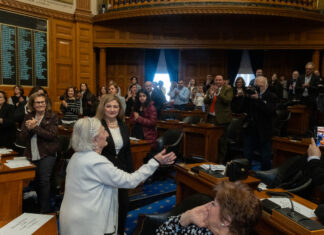By Alin K. Gregorian
Mirror-Spectator Staff
Peter Balakian, whether he likes it or not, has become the unofficial chronicler and the narrator of the Armenian Genocide in the American mass media.
Balakian, a professor of English at Colgate University, was known as a first-rate poet by the non-Armenian community before he wrote The Black Dog of Fate, his autobiography, which garnered tremendous reviews — and sales — about a young boy’s desire to fit in and just be the same as everyone else, and finding about the horrific past of his family, survivors of the Armenian Genocide.
“Well, whatever chronicling I’ve done is the result of being a poet for whom the idea of the past is important and one of the domains of the past I’ve written about is the Armenian Genocide and the Armenian cultural past.”
He added, “The most important act of imagination is transformation. Transforming that history into a poetic language that has reach and depth and freshness has been the goal of my work and if I can engage that act of transformation, the history will have another life.”
“Both sides of my family had Genocide survivors, although in very different contexts. It has shaped my understanding of some of the possibilities for the imagination and some of the reaches of poetry and prose,” he said.









